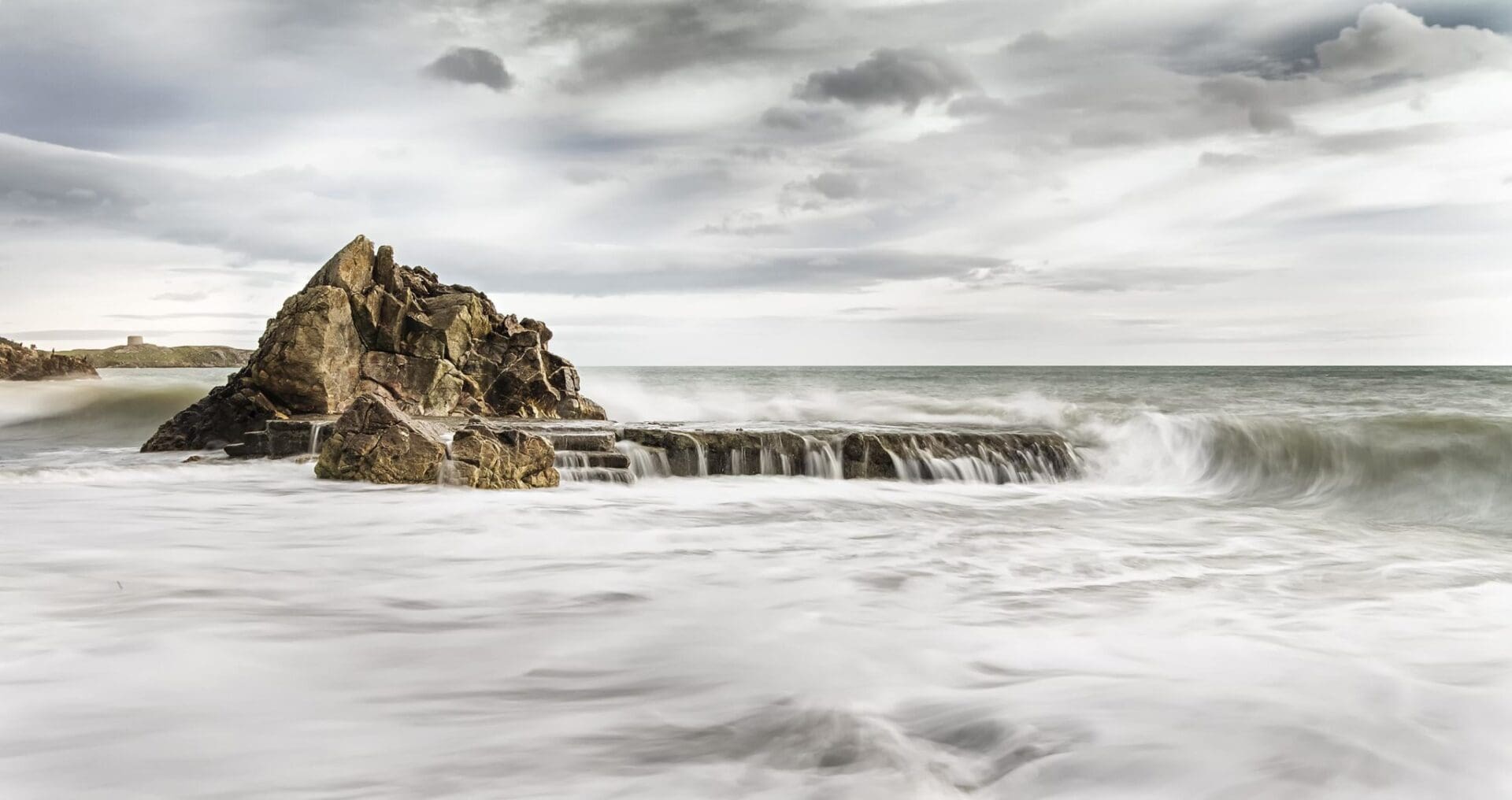What if Jesus hadn’t calmed the storm?
It is one of the most beloved stories in the Bible, found in Mark 4:35-41. Jesus and his disciples are crossing the Sea of Galilee when a storm rolls in. The waves threaten to sink the boat. Jesus is asleep.
Asleep! How can he be asleep? Terrified, the disciples wake him and ask if he cares that they might be killed. Jesus gets up, tells the wind and waves to be still, and then asks the disciples why they are so afraid. Naturally, they are full of wonder at this event. But Jesus is rather casual about the whole thing.
Of course, there are a few different ways we could interpret this story. Jesus knows the Father’s plan. He knows that this is not the death he has come for. He also, presumably, knows that he can command the wind and waves and they will obey. So he has no cause for concern. But I find a compelling truth in the events following this story.
When they do arrive on the other side, they are immediately met by a man possessed by many demons. He was so strong that even chains could not hold him, and everyone was afraid to pass by that way. This man was aggressive and violent. Not only that, he lived among the tombs, and was therefore constantly in touch with death—the ultimate defilement in Jewish law. Both inside and out, this man was as corrupted as he could be.
Jesus comes to this man, the one whom no one else dares approach. He is no longer casual. Now we see Jesus relentlessly pursuing the demons that afflict this poor soul (Mark 5:8). He is on the offensive. Earlier, when Jesus says to his disciples, “Let us go over to the other side” (v. 35), he isn’t just making an idle suggestion. He moves with purpose, knowing that the other side of the lake is a battleground. He will go and confront the servants of his enemy, and he will be victorious. So while they are crossing, no matter the ferocity of the wind or the size of the waves, Jesus is unconcerned. He is not confronting the enemy in the storm, rather, the enemy lies on the other side of it. There is nothing to fear on the water.
The Storm Is Not the Point
Storms threaten to sink our faith. These are not every day inconveniences like a flat tire or a hassle at work. These are the difficulties that cause us to question God’s goodness. Prolonged illness, the death of a loved one, a loss of purpose, a marriage destroyed—and it seems like God is asleep. If he really cared, if he really understood, then surely he would stop this from happening. We pray for healing and relief, for opportunity, for reconciliation, for anything that will make the storm pass.
What I see in this story, however, is that the storm is not the point. The storm is real and terrifying—the disciples believe that they will not survive—but the point is not about surviving the storm. The point is about who is in the boat with them. Yes, Jesus can calm the storms of our lives. That is wonderfully true, and I myself have been encouraged by that knowledge. But Jesus didn’t come to calm storms, he came to save souls. Jesus didn’t come to give me a comfortable life, he came to defeat death. That is not an easy path.
“But Joel,” you say, “what about ‘casting my cares’ on God? Doesn’t he care that I am suffering?” Yes, of course he does. But let’s look carefully at that idea.
Humble yourselves, therefore, under the mighty hand of God so that at the proper time he may exalt you, casting all your anxieties on him, because he cares for you. (1 Peter 5:6-7)
We talk often enough of “casting our anxieties on him,” but how much do we hear about “humbling ourselves under his mighty hand?” The two things are linked in this passage. Casting our cares on him, according to these verses, is not simply a desire to avoid unpleasant circumstances, but rather a submission to whatever circumstances God may bring into your life, simply because they are from God. The apostle Paul exemplifies this in 2 Timothy 1:12, referring to his calling as an apostle and the hardship that goes with that appointment:
…which is why I suffer as I do. But I am not ashamed, for I know whom I have believed, and I am convinced that he is able to guard until that Day what has been entrusted to me.
Paul is not in denial about suffering, but his faith in Jesus Christ is unshakable regardless of circumstances.
The Storm Is About a Battle
I am not trying to diminish anyone’s suffering, nor would I suggest that you cannot cry out to Jesus about the storms in your life. He does, after all, get up and calm the storm in this story. It’s not that Jesus doesn’t care about your problem, it’s just that your problem isn’t going to sink the boat.
Jesus does not say, “Let us go out to the middle of the lake and drown.” Nor does he say, “Golly, all this teaching has really made me tired. A little cruise would be just the thing.” He has a destination in mind, and a soul to save. He has a battle to fight.
Storms are frightening, I know. I know what it is to think I cannot survive, that God doesn’t care, that death would be preferable—then at least it would be over. I know what it is to feel useless, helpless, and hopeless. And if that’s how you are feeling right now, take courage.
Jesus does not take people out into the middle of the sea to drown them. He takes people across the sea so that they can participate in his work of world redemption. He does not stand afar off to do this. No, he enters the darkness, the evil, the suffering of this world, and he transforms it from within. If we are following him, then we too will enter this darkness. We need to keep Jesus in sight (Hebrews 12:2). We need to understand who this is, asleep in the boat.
The storm is not where you face the enemy. The storm is where you meet your God.
It is in adversity, when we come to the end of ourselves, that we see the power of God in our lives. Holocaust survivor Corrie Ten Boom said, “There is no pit so deep that God’s love is not deeper still.” How can you really absorb that truth unless you are in a pit deep enough to make you doubt it?
I too cried out to God to save me from the storm in my life. He didn’t. The storm raged on until I reached the other side. I saw his power over the storm in a different way. I began to understand how he was using the storm to transform my life, to confront the evil and corruption within me. For a long time, I saw myself simply as one of the disciples in the boat.
Slowly, I came to understand that I was also the man in the grip of the legion. I don’t mean that I was possessed by demons. But I was definitely full of sin and corruption, plagued by wrong ideas about God and about myself, and those things kept me from pursuing God as fully as I should.
And here was Jesus, coming through the storm to rescue me.
Conformed through the Storm
Relief from the storm is not the best thing that can happen to you. The best thing that can happen is for you to be conformed to the image of the Lord Jesus Christ. The enemy can use the storm to make you anxious, afraid, hurt, and discouraged. God can use it to make you fearless, secure, and steadfast.
Jesus can calm the storm in your life. But even if he does not, you can trust that he will uphold you, you can believe that he will transform you, and you can know that he loves you.
So we do not lose heart. Though our outer self is wasting away, our inner self is being renewed day by day. For this light momentary affliction is preparing for us an eternal weight of glory beyond all comparison. (2 Corinthians 4:16-17)



